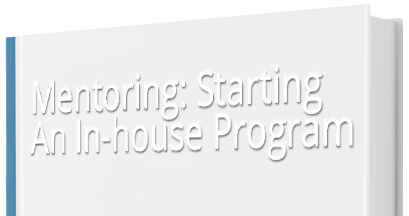How to Write Strong Executive Core Qualifications (ECQs)
The key to well-written ECQs is to give readers (i.e., executive resources staff, rating and selecting officials, and Executive Review Board (ERB) members) specific information about your most significant achievements. Be sure to include professional and volunteer experience, education, training, and awards that demonstrate your skills in each ECQ where necessary.
Begin your ECQ statement with a brief summary of your executive experience. Then use the following approach to describe your accomplishments:
Challenge-Context-Action-Result (CCAR) Model
An ECQ statement may include one or more examples of relevant experience. The number of examples is not as important as assuring that your experience matches the ECQ criteria. The ERB is looking for specific challenges, actions and results. Follow this model in writing your qualifications statements.
- Challenge. Describe a specific problem or goal.
- Context. Discuss the individuals and groups you worked with, and/or the environment in which you worked, to tackle a particular challenge (e.g., clients, co-workers, members of Congress, shrinking budget, low morale).
- Action. Discuss the specific actions you took to address those challenges.
- Result. Give specific examples of the results of your actions. These accomplishments demonstrate the quality and effectiveness of your leadership skills.
PLEASE NOTE: With regard to the CCAR Model: Do NOT label each section (i.e., do not label the description of the problem or goal as ‘Challenge’). Simply develop your response in one continuous document, in first person, narrative form.
Format
• Each ECQ should be 1 – 2 pages in length.
• Responses should be easy to read; use paragraphs to separate examples.
• Avoid acronyms, unless you spell them out several times in the application.
• Use capital letters, bold or italics to highlight important information.
• Leave some white space; do not type margin to margin.
• 12 point Times New Roman font size is preferred.
• Do not make reviewers hunt for experience (e.g., “see attachments”). Make certain all relevant information is provided in each ECQ.
• Do not attach copies of training certificates, awards, or position descriptions.
• Include awards that relate specifically to each ECQ where necessary.
• Number all pages.
• Do not assume “Spell-Check” will catch all the errors; review every word and sentence carefully.
Important Details to Remember
• Absolutely no typos or grammatical errors.
• Use personal “I” instead of third person.
• Write in short, complete sentences.
• Use common words and expressions instead of bureaucratic ones.
Tone
• Be friendly and professional, not stilted, formal, or chatty.
• Avoid passive verbs; use active verbs with the personal “I.”
Bad: The establishment of a new team structure was considered one of my best accomplishments in that it reduced the need for six supervisory positions (too long–24 words; awkward sentence structure, too passive).
Good: I established a new team structure that eliminated the need for six supervisors (only 13 words; clear and concise, good use of personal “I” with an active verb).
Stay Focused
• Focus on leadership rather than managerial and technical abilities; all three are important, but leadership is most important.
• Demonstrate your experience in all 5 ECQs.
• Remember to follow the Challenge-Context-Action-Result model.
• Each ECQ should contain specific, job-related experiences with specific accomplishments.
• Address the fundamental competencies over the course of each ECQ narrative.
• Never combine any of the ECQs.
• Never address an ECQ by referring the reader to other parts of your application (e.g., see resume).
• Avoid using an identical example for more than one ECQ.
• Avoid a “laundry list” of activities without context, actions, or accomplishments.
• Focus on your vision for the organization; not your personal vision.
• Focus on recent experience, education, and training. Some reviewers consider experience that is over 10 years old to be stale.
• Highlight awards or other forms of recognition that relate specifically to an ECQ.
• Include non-federal experiences (e.g., private sector, volunteer and professional organizations) if they support the ECQ.
• Include relevant formal education or training that has enhanced your skills in a particular ECQ.
• Do not forget to include examples of special assignments and details.
• Include special qualifications: public speaking, publications, languages spoken, membership in related professional organizations or scientific societies, or expertise in a technical area.
• Show measurable results, especially in terms of improved customer service, increased efficiency, productivity, or cost savings.
• Avoid vague statements.
Bad: I manage various communication processes to field offices.
Good: I produce two weekly radio shows, one monthly television program, and a bimonthly newsletter to 10,000 employees located in 12 regional offices.
Additional Tips
• Avoid statements that describe your personal beliefs, philosophies, or commitment to social or political causes unless you can show bottom line results.
• Do not reveal information about your political affiliation or activities unless you are using experience as a political appointee to qualify.
• Do not identify your race, sex, national origin, color, religion, age, marital status, physical or mental disability, sexual orientation, or any other non-merit factor.
The Final Step
• When completed, ask 3 trustworthy and knowledgeable individuals to review your application.



